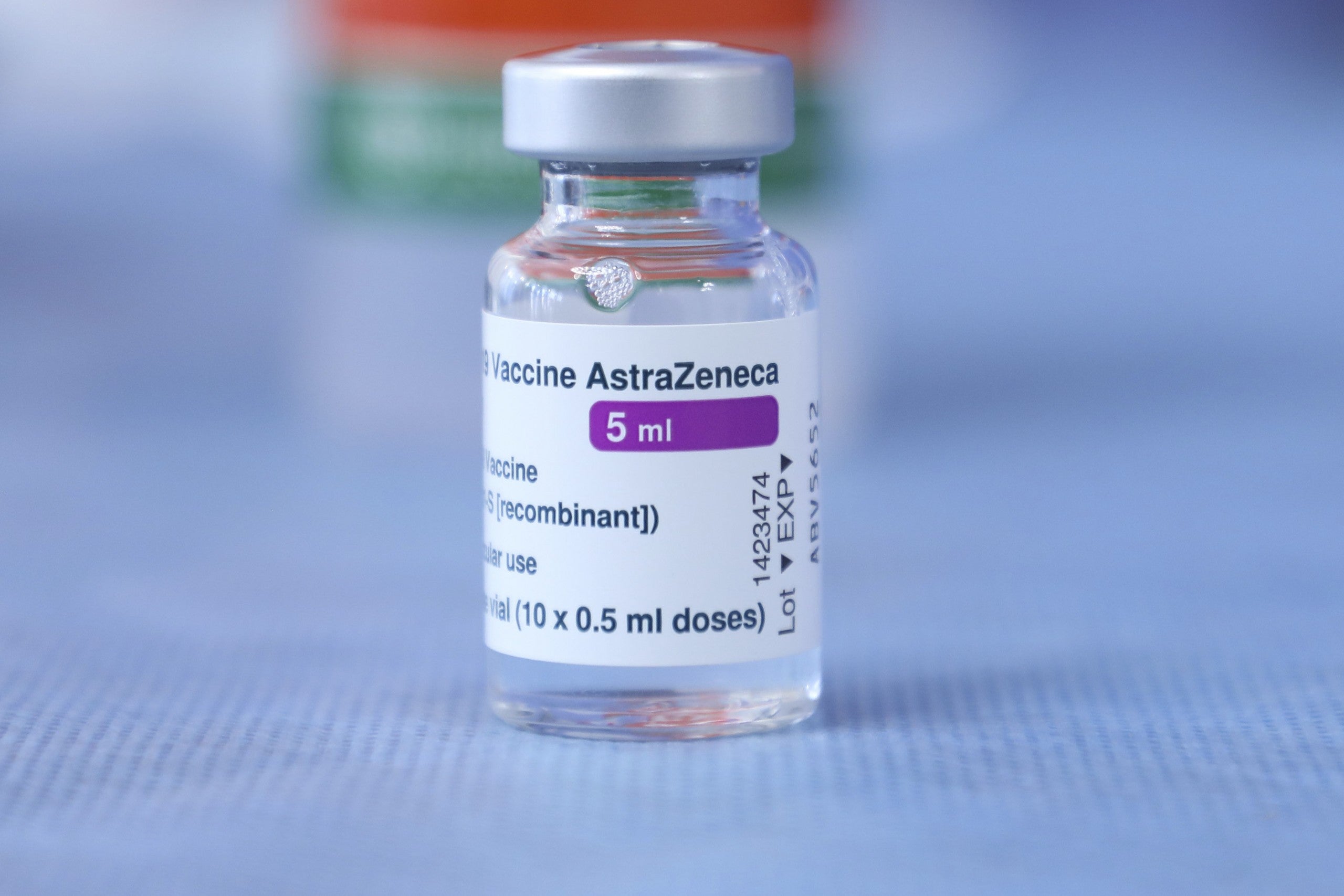Canada pauses AstraZeneca vaccine for under 55
TORONTO (AP) — Canada is suspending the use of the Oxford-AstraZeneca vaccine for people under the age of 55 following concerns it may be linked to rare blood clots.
The National Advisory Committee on Immunization recommended a pause on AstraZeneca COVID-19 vaccinations for people under 55 for safety reasons and the Canadian provinces, which administer health in the country, announced the suspensions Monday.
“There is substantial uncertainty about the benefit of providing AstraZeneca Covid-19 vaccines to adults under 55 given the potential risks,” Dr. Shelley Deeks, vice chair of the National Advisory Committee on Immunization, said.
Dr. Joss Reimer of Manitoba’s Vaccine Implementation Task Force said despite the finding that there was no increase risk of blood clots overall related to AstraZeneca in Europe, a rare but very serious side effect has been seen primarily in young women in Europe.
“So out of abundance of caution, Manitoba will be recommending that these vaccines only be used in people who are 55 or older at this time. I do want to say this is a pause while we wait for more information to better understand what we are seeing in Europe,” Reimer said.
Reimer said the increase in the rare type of blood clot happens affects somewhere around one in 100,000 or one in a million people who receive AstraZeneca. She said it typically happens between four and 20 days after getting the shot and the symptoms can mirror a stroke or a heart attack.
Reimer said they have not seen any of these cases in Canada.
“While we still believe the benefits for all ages outweigh the risks I’m not comfortable with probably. I want to see more data coming out of Europe so I know exactly what this risk benefit analysis is,” Reimer said.
The AstraZeneca shot, which has been authorized in more than 70 countries, is a pillar of a U.N.-backed project known as COVAX that aims to get COVID-19 vaccines to poorer countries. It has also become a key tool in European countries’ efforts to boost their sluggish vaccine rollouts. That makes doubts about the shots especially worrying.
“This vaccine has had all the ups and downs. It looks like a roller coaster,” said Dr. Caroline Quach-Thanh, the chair of the National Advisory Committee on Immunization, when asked if the latest news will lead to further vaccine hesitancy.
Health Canada, the country’s regulator, called the pause a precautionary measure.
Only those 60 and above have received AstraZeneca in Ontario, Canada’s most populous province.
“We have no concerns with those who have received it so far,” said Dr. David Williams, Ontario’s chief medical officer.
Several European countries that had suspended using the vaccine over concerns it could cause blood clots have resumed administering it after the EU’s drug regulator said the vaccine was safe.
The vaccine is used widely in Britain, across the European continent and in other countries, but its rollout was troubled by inconsistent study reports about its effectiveness, and then more recently the scare about clots that had some countries temporarily pausing inoculations.
Canada is expected to receive 1.5 million doses of AstraZeneca from the U.S. this week.
Canadian regulators approved the Pfizer, Moderna, AstraZeneca and Johnson & Johnson vaccines. Canada has placed bigger bets on Pfizer and Moderna, ordering up to 76 million doses of Pfizer and up to 44 million of Moderna, compared with up to 20 million of AstraZeneca. It’s not known when Canada will receive its first shipment of Johnson & Johnson.
Canada has lagged on vaccinating its population because it lacks the ability to manufacture the vaccine and has had to rely on the global supply chain for the lifesaving shots, like many other countries. With no domestic supply, Prime Minister Justin Trudeau’s government bet on seven different vaccines manufactured elsewhere and secured advance purchase agreements — enough to get 10 doses for each of Canada’s 38 million people. While acquiring them has proven difficult, deliveries have ramped up this month. Canada expects to have more than 36.5 million doses by July and officials hope to get at least one dose into all Canadians adults who want one by the end of June.
The National Advisory Committee on Immunization earlier recommended a four-month delay between doses after data from the U.K. and Quebec showed a good level of protection offered by the first shot. The U.K. has instituted a similar delay.
